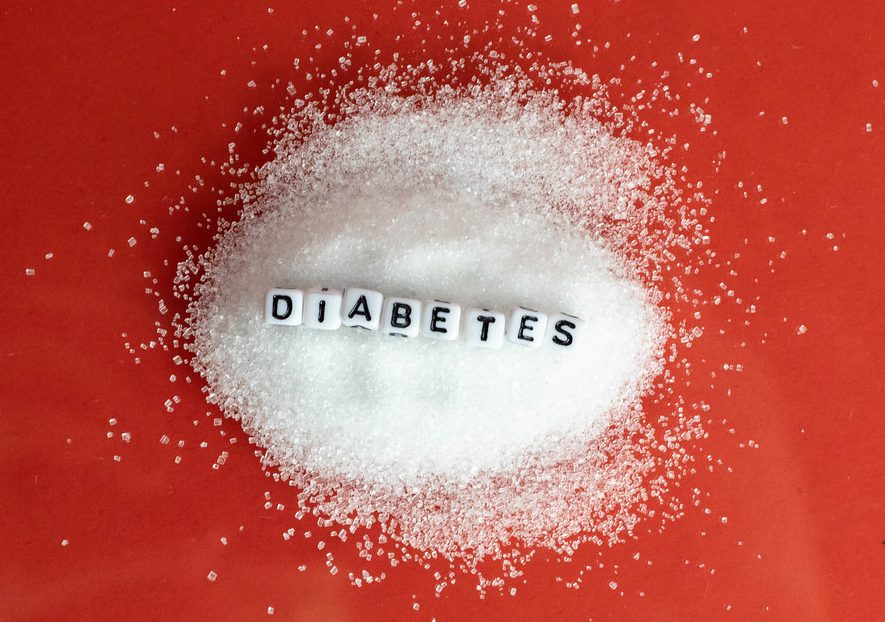

[et_pb_section fb_built="1" _builder_version="4.16" global_colors_info="{}" theme_builder_area="post_content" da_is_popup="off" da_exit_intent="off" da_has_close="on" da_alt_close="off" da_dark_close="off" da_not_modal="on" da_is_singular="off" da_with_loader="off" da_has_shadow="on" da_disable_devices="off|off|off"][et_pb_row _builder_version="4.16" background_size="initial" background_position="top_left" background_repeat="repeat" global_colors_info="{}" theme_builder_area="post_content"][et_pb_column type="4_4" _builder_version="4.16" custom_padding="|||" global_colors_info="{}" custom_padding__hover="|||" theme_builder_area="post_content"][et_pb_text _builder_version="4.16" background_size="initial" background_position="top_left" background_repeat="repeat" global_colors_info="{}" theme_builder_area="post_content"]
Diabetes mellitus is a chronic metabolic disease that affects a large part of the Indian population. Diabetes can be either Type 1 or Type 2 out of which Type 2 is more common.
The main characteristic of a diabetic patient is a high sugar level which we call hyperglycemia. If your diabetes is not controlled, you are prone to many oral problems like gum disease, decreased saliva, infections and slow healing.
Gum infection is a common dental problem for diabetic patients. Periodontitis is a disease of the gums, ligament, and bone of the oral cavity which can result in loose teeth. It occurs almost the same as in non-diabetic patients but due to the inadequate healing and immunity in diabetes, it can be more severe and take longer to resolve. However, with regular professional treatment, it can revert to normal if you take certain steps.
Diabetes also affects the function of your salivary glands. Dry mouth is a common complaint of diabetic patients, which occurs due to decreased flow of saliva. In some cases, there can be an enlargement of the gland or a risk of developing salivary gland stones or salivary gland infection. Dry mouth is also known to increase incidences of tooth decay because saliva is a natural cleanser and lubricant in the mouth.
Diabetic patients are prone to encounter a variety of infections if their sugar levels are not in control. A yeast infection is the most common in diabetes, especially if there is already a case of dry mouth. It is characterized by reddening of oral tissue, usually on the tongue, roof of the mouth, gums, inner cheeks or corners of the mouth.
Generally, if a patient of diabetes is under good medical control, they can undergo any dental treatment. The dentist wants to make sure your blood sugar does not drop during the treatment (hypoglycemia). Therefore, you should always have your meal before the dental appointment. After the treatment, follow the instructions given by the dentist and take all your prescribed medicines on time.
If you have diabetes, you can always go for any routine dental procedures like a check-up, simple fillings, and cleaning procedures. However, treatments such as extractions, surgeries, and root canal treatments may interfere with the management of your diabetes. Hence, your dentist and physician will have to formulate a suitable plan for you.
Also, the dentist might need the consent of your physician in writing before starting any invasive procedure. Diabetes is a chronic disease that puts you at risk for many dangerous ailments including heart disease, hypertension, kidney failure, blindness, and infections. Compared to healthy individuals, diabetic patients also suffer from problems in the healing process of the body. The ability of the body to fight infections is also reduced to some extent.
[/et_pb_text][/et_pb_column][/et_pb_row][/et_pb_section]
Dr. Vidhi Bhanushali is the Co-Founder and Chief Dental Surgeon at scanO . A recipient of the Pierre Fauchard International Merit Award, she is a holistic dentist who believes that everyone should have access to oral healthcare, irrespective of class and geography. She strongly believes that tele-dentistry is the way to achieve that.Dr. Vidhi has also spoken at various dental colleges, addressing the dental fraternity about dental services and innovations. She is a keen researcher and has published various papers on recent advances in dentistry.
scanO is an AI ecosystem transforming oral health for patients, dentists, corporates, and insurers worldwide

© 2025 Trismus Healthcare Technologies Pvt Ltd